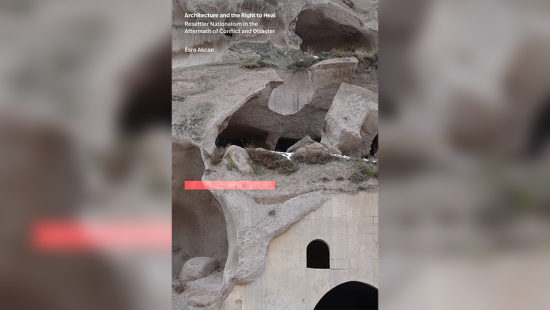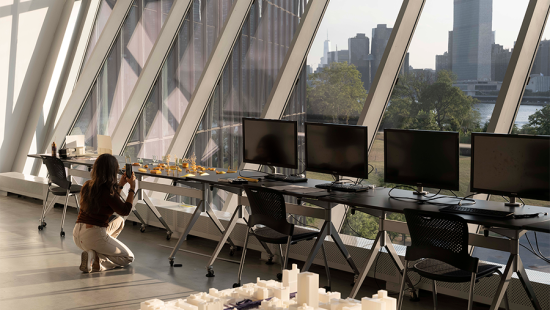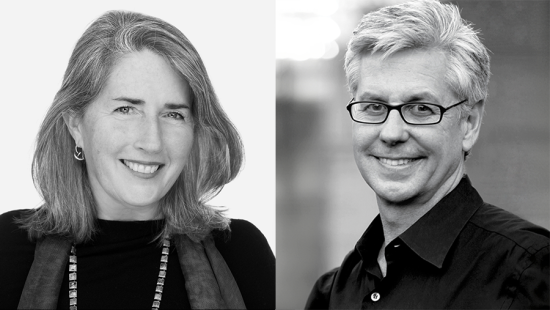Tatiana Bilbao: Architecture as a Primary Form of Care
This year's L. Michael Goldsmith Lecture returns to New York City on April 19 and will be given by Mexico City-based architect Tatiana Bilbao. In advance of the event, Bilbao shares insight into her approach to design and the priorities that drive her practice.
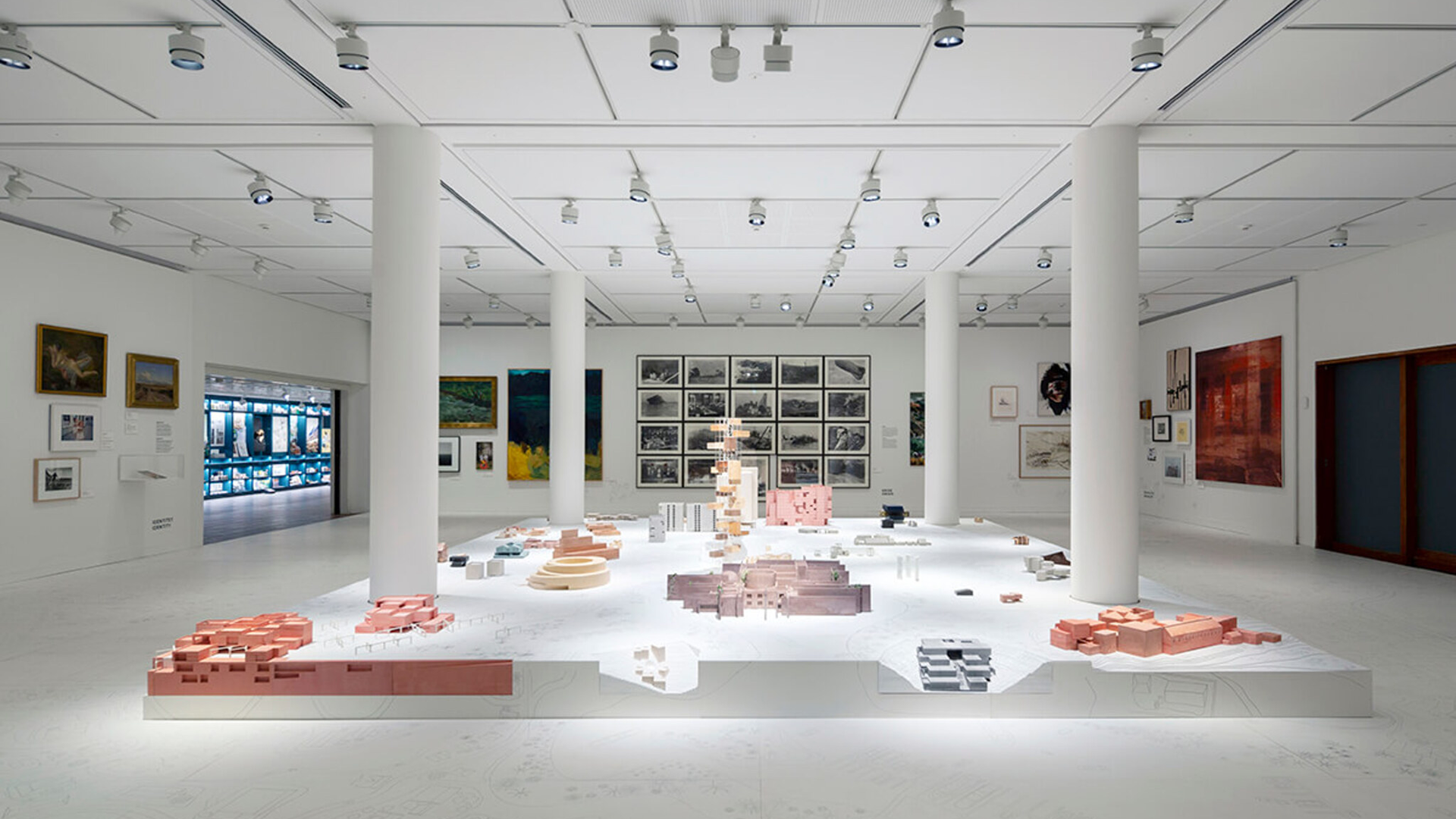
A retrospective of the work of Tatiana Bilbao Estudio exhibited by The Louisiana Museum of Modern Art in Denmark. image / provided
"When I graduated from school, I thought I'd learned nothing. I really thought I had no capacity to design anything for anybody else," confesses internationally recognized architect Tatiana Bilbao. "But I soon realized that it was more that I didn't believe in the principles I was taught. So, I started searching for my own tools, my own ways." Bilbao, who established the award-winning firm Tatiana Bilbao Estudio in 2004, has since firmly found her footing, building a practice around collaboration and social values across projects ranging from affordable housing to museums and botanic gardens.
On April 19, at the Cornell Tech campus in New York City, Bilbao will deliver a talk titled "The New Necessary Landscape: The Social One," this year's L. Michael Goldsmith Lecture, during which she will share the philosophies that underpin her work.
"I see architecture as a primary form of care," she explains. "I design by putting humans in the center and caring about them. Spaces need to not only have the capacity to protect our bodies, but to inspire our lives. We definitely use geometry or composition or proportion as tools, but we design for and with people."
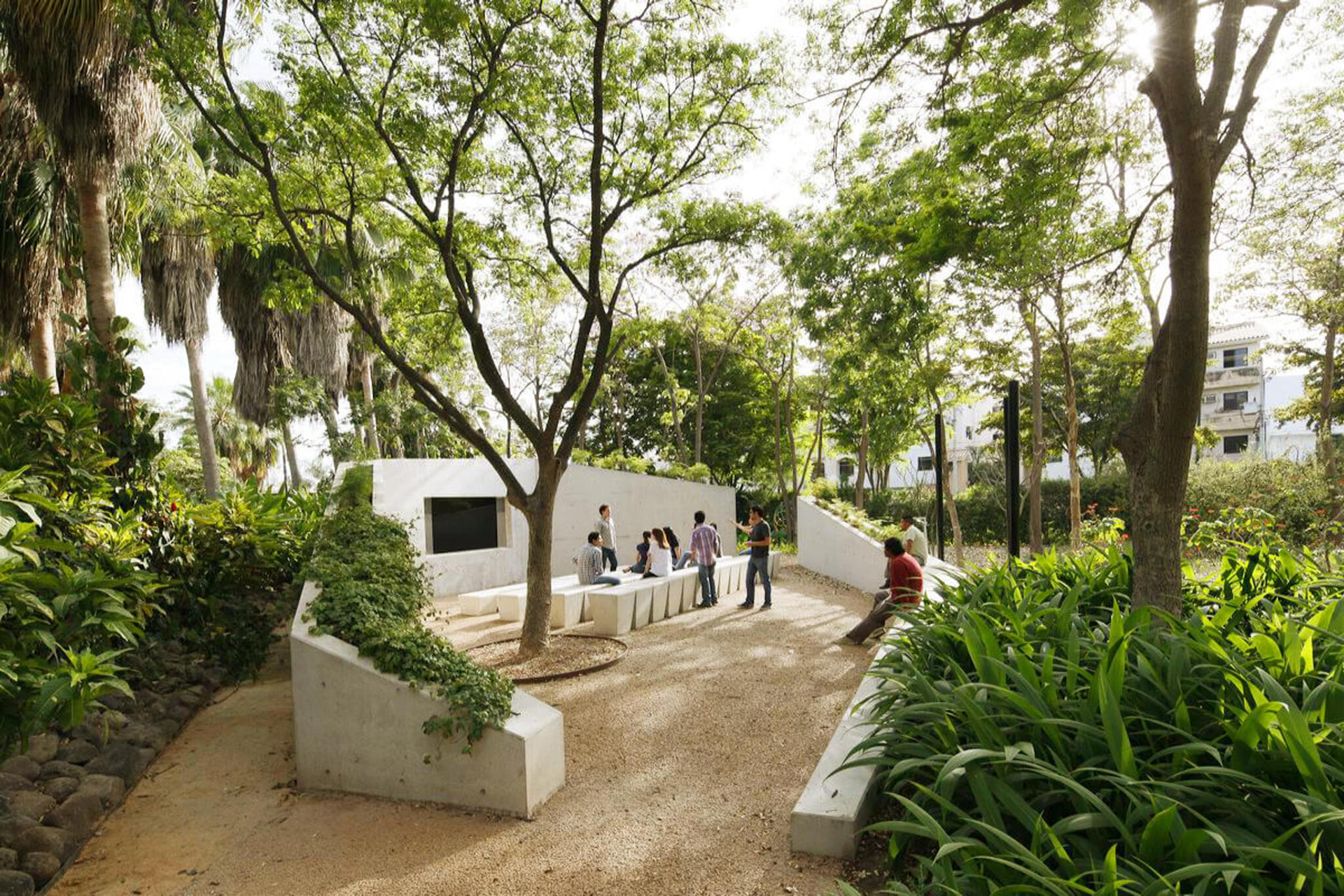
Revitalization of the Botanical Garden in the city of Culiacán, Mexico, a multi-stage project Bilbao's office has been involved with since 2004. image / provided
The revitalization of the Botanical Garden in Culiacán, Mexico, a long-term multi-stage project that has been ongoing since 2004, is an illustrative case in point. Initially, the team considered constructing a large pavilion. However, after observing the community's activities, they shifted their approach and instead proposed smaller, more flexible interventions that better reflected the existing use of the space. "If we tried to create things that would direct what happens here, we would be working against how the garden was used. That's when we decided to provide spaces that would enhance what already happened there. We started intervening in very small spots, doing pavilions that would generate different possibilities for different activities, and with the same kind of intuitive, improvised quality of what was already happening."
Following this early insight, Tatiana Bilbao Estudio has developed a reputation as an architectural design practice that welcomes collaboration and is driven by physical rather than digital exploration. The studio's projects include educational facilities, city masterplans, social housing prototypes, and opening this spring, the Research Center of the Sea of Cortés in Mazatlán.
"Tatiana Bilbao's practice, and that of her studio, finds ever more thoughtful and inventive ways to radically humanize architecture — creating space for and with communities," says AAP Dean J. Meejin Yoon, who will introduce Bilbao on April 19. "Exceeding conventional notions of social design or sustainable architecture, Tatiana Bilbao Estudio brings a sense of connectedness and care to the impactful places they make."
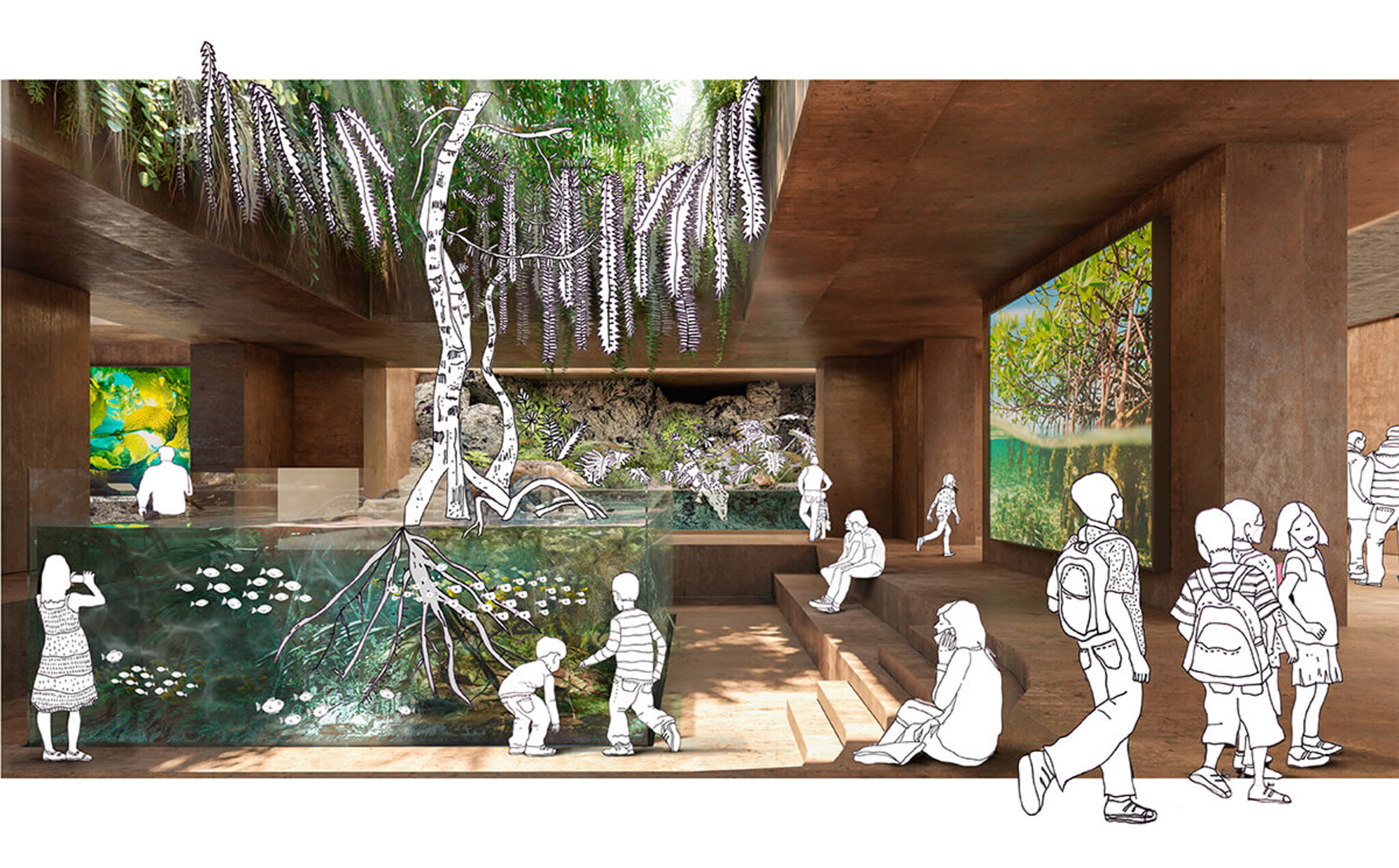
Collage created during the design phase for the Research Center of the Sea of Cortés in Mazatlán. image / provided
"I see architecture as a primary form of care. I design by putting humans in the center and caring about them. Spaces need to not only have the capacity to protect our bodies, but to inspire our lives." — Tatiana Bilbao, architect
Bilbao's interest in collaborative work often extends beyond standard architectural and urban design practices. In order to more effectively invite multiple viewpoints, the studio works closely with the people and communities who will inhabit the spaces they design, embracing the flexibility required to accommodate multiple needs and uses. For example, their process tends to avoid realistic renderings in the early phases and instead begins by bringing disparate pieces together to inform design directions. "Intuitively, we started doing collages, which created many of the things we wanted. A collage is always open to interpretation and inclusive. For this reason, it is a very productive method in many ways because we believe our architecture should function as a collage. Our aim is to offer platforms for anyone to create their own life, not our own ideas reflected in the space."
Working this way is not always the most economical, easy, or without conflict, but Bilbao illustrates why provoking this conversation is essential. "Every collage proposes controversy, and that's good! This is what we want. We want controversy because this is when you create possibilities for understanding."
Attend the Lecture
Tatiana Bilbao: The New Necessary Landscape: The Social One
April 19, 2023
6:30 p.m.
Cornell Tech campus
The L. Michael Goldsmith Lecture is held annually in New York City and was established in 2009 in memory of architect Michael Goldsmith (B.Arch. '72) by his family and friends in recognition of his passion for his education at Cornell, his career, and his love of the profession of architecture. The lecture series features practicing architects who focus on creating work with immediate and tangible effects on the built environment.



